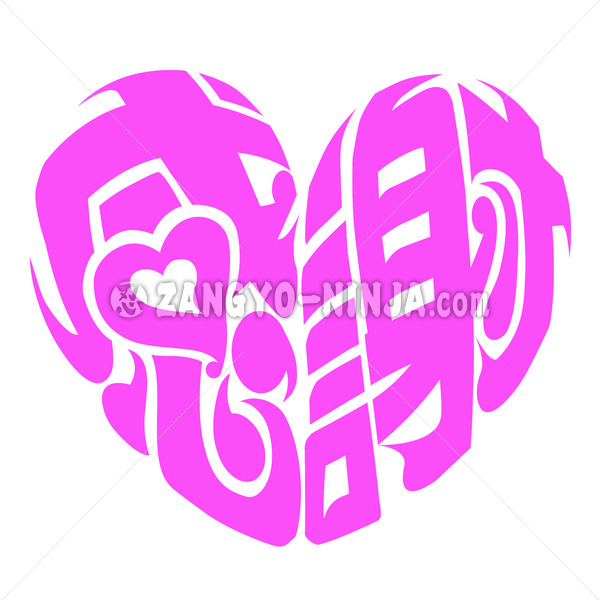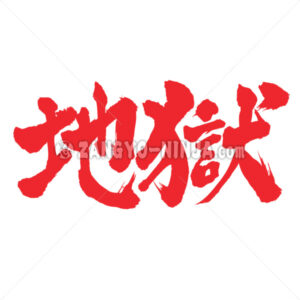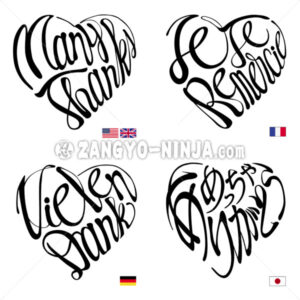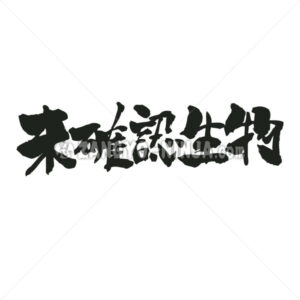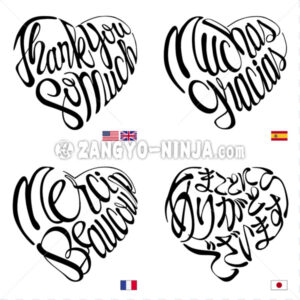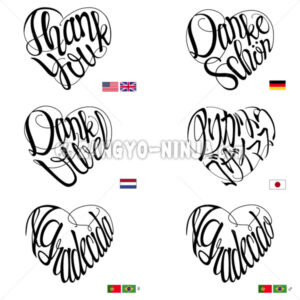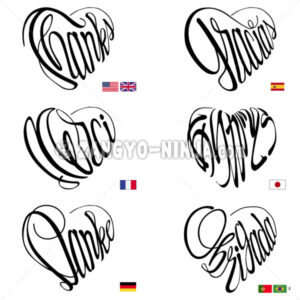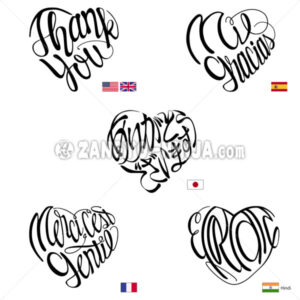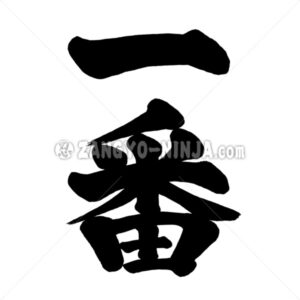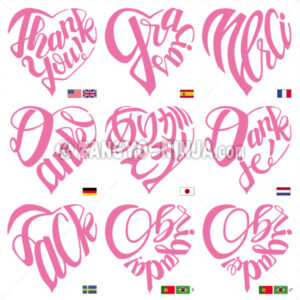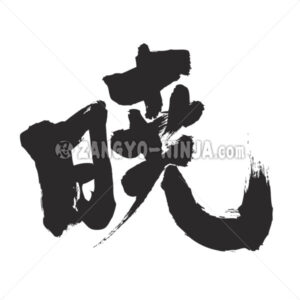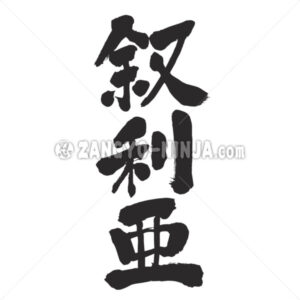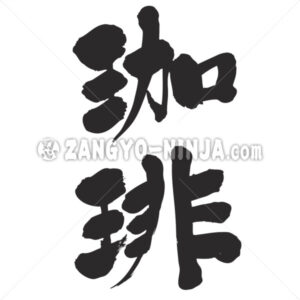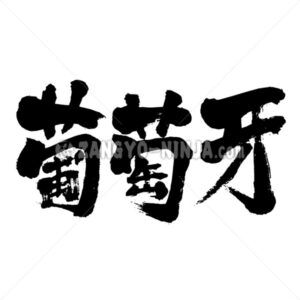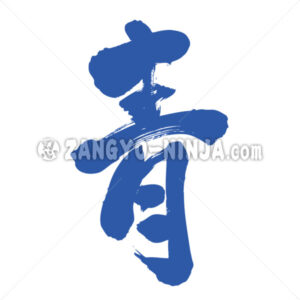Description for “Heart shaped thank you so much in Kanji”
Since gratitude is something that is felt with the heart (although some say it is conveyed as a will to the head), the design is a heart-shaped version of the kanji character for gratitude.
What is gratitude?
Gratitude is an emotion that we feel when we recognize that we have obtained some good result, and it is said to be built into our genes.
It is also found in chimpanzees and other non-human creatures.
When altruistic feelings are triggered by feelings of gratitude, they cause us to want to do something for others and take action.
Gratitude has a greater effect when it is communicated.
It may come as a surprise, but research has shown that words of gratitude such as “thank you” have a greater effect on the one who delivers them than on the one who receives them.
A study by Robert Emmons, a professor at the University of California, shows that people who are grateful show positive effects on their health and well-being.
For example, the research shows that they have better immunity and pain tolerance, feel more fulfilled in life, and are more kind and generous.
The many benefits and effects of saying thank you
1. Positive impact on health
Associate Professor Stephanie Brown of the State University of New York states that altruistic behavior has a positive impact on health.
The idea is that altruistic behavior that does not seek reward, rather than self-centered behavior, increases the likelihood of longevity.
Scientifically, this is evidenced by changes in the length of telomeres, which affect cellular age.
2. Increased happiness
Gratitude itself has the benefit of increasing happiness.
People who are usually grateful often have less stress reactions, are less likely to be depressed, and are more likely to feel that they are happy.
Many studies have shown in recent years that wellbeing is higher in people who are grateful than in people who are not grateful.
3. Positivity.
In recent years, research results based on statistics and other scientific data have been reported in the field of psychology.
In particular, in the field of positive psychology, data on behaviors of expressing gratitude have been analyzed using sensors and other methods.
For example, it is assumed that when happiness is increased by expressing one’s feelings to others through letters of gratitude, it results in a positive psychology.
4. Positive impact on society
Professor Maeno of Keio University has identified four factors that lead to “sustainable happiness.
Among them, “connection and gratitude,” pleasing others and good human relations are necessary for a long-lasting sense of happiness.
If each individual focuses only on the negative aspects of the world and becomes negative, it will have a negative impact on society as a whole.
If we can focus on the positive aspects of the world on an individual level by expressing gratitude, the positive impact will spread to society as well.


